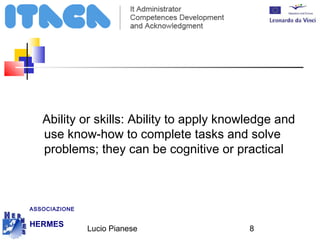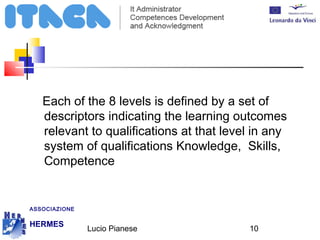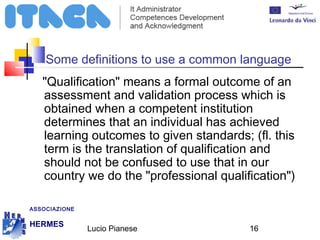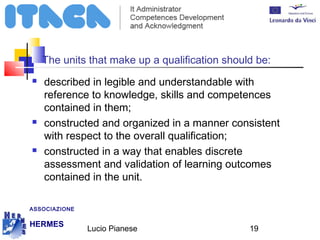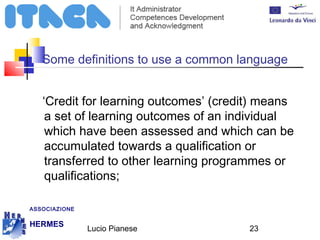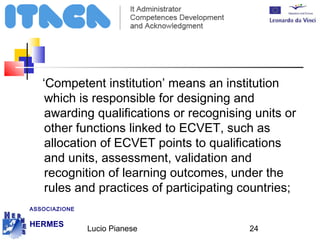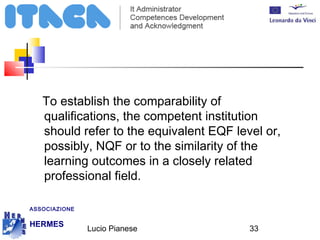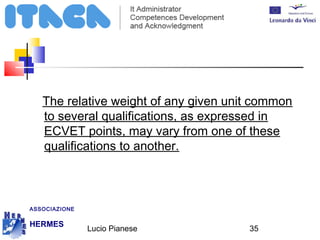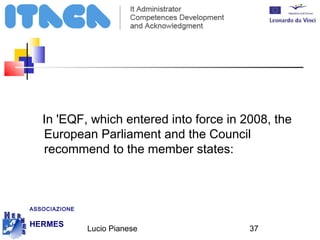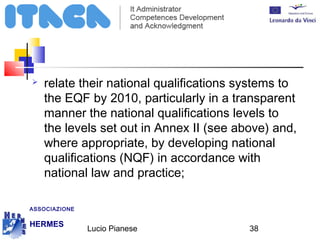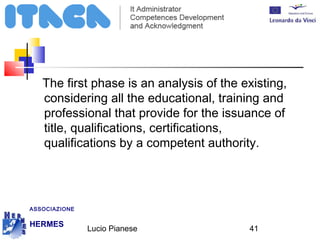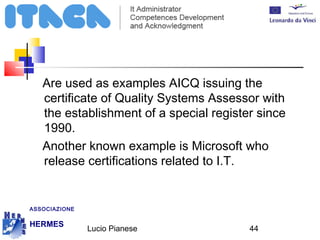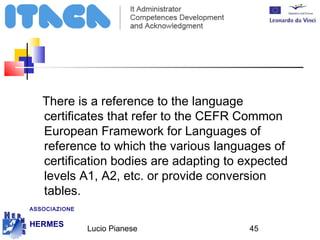The document discusses the ITACA project, which aims to design a pilot certification course for IT administrators focused on projects and internships. The goal is to have the credits from this course recognized according to the European Qualifications Framework (EQF) and ECVET system. It provides background on the EQF, which establishes 8 levels of qualifications across Europe based on learning outcomes rather than educational inputs. It also explains key concepts of the ECVET system such as units of learning outcomes, credits, competent institutions for validation and recognition.







